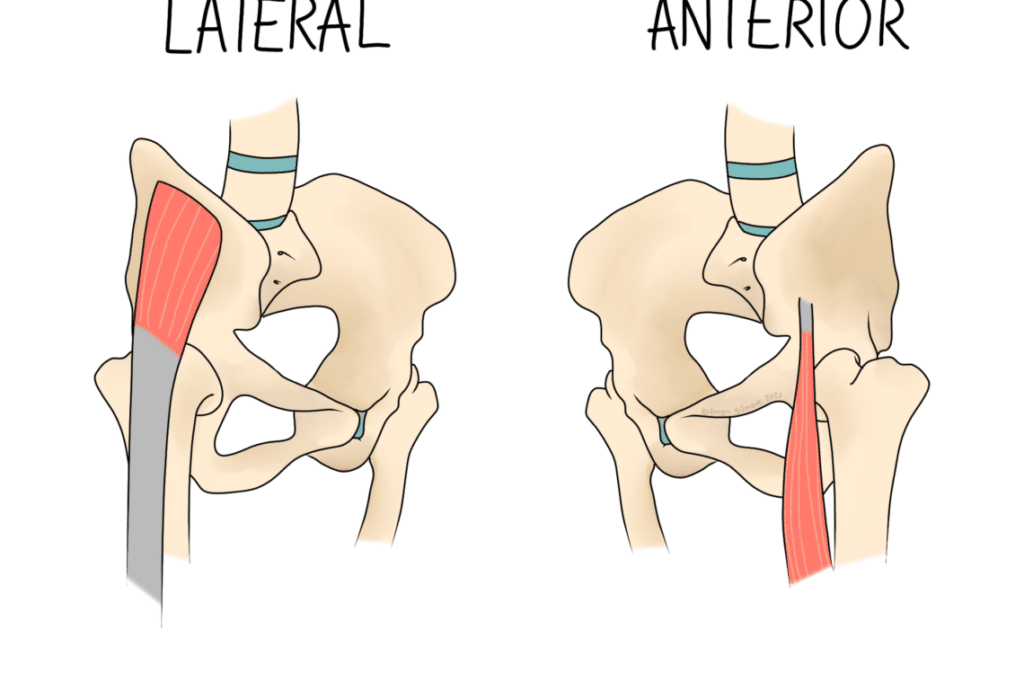

Painless “snapping” in the hip, whether heard too or just felt, can be worrying. Most of the time it’s just a muscle flicking over, but it’s still worth checking it out.

The formal name for snapping hip is Coxa Saltans, which only applies when the cause is a muscle. There are three categories of this:
The category refers to the muscles involved. The common two involve a muscle of the glutes, or a deep abdominal muscle. The rare type involves a muscle from the hamstrings.
If this is caused by a tight muscle, your osteopath will work out whether this is an isolated symptom. Sometimes muscles become tight because of posture- your hip flexors will shorten if your hip is always flexed. Other times, there may be tightness in response to instability or hypermobility. If this is the case, we want to release the muscle but also strengthen it so that it can do the job more comfortably.
Although the syndrome is painless, it may still be an indicator of something else. In the lateral type, the ITB can be the tissue that flicks over. The ITB is something between a muscle and a joint, and it runs from the outside of the hip to the knee. Runners often find that it is tight and may be sore, but it might be tight for a reason. The role of the ITB is to stabilise the knee, so treating the tightness without looking at the knee is not the best idea.
Sometimes, especially in the second type, the snapping may be caused by muscle flicking over a bursa. Bursae are little fatty cushions that prevent friction between muscle and bone. They are found all over the body. If irritated, they can become very sore and develop bursitis. If a click hip is a warning sign of this, it would be ideal to prevent its development.
Your osteopath will look at everything going on, and determine the root cause of your snapping hip.
When the cause of a hip clicking is not muscular, it might be due to something within the joint. This is more likely to be the case if the clicking is painful, or if there is ever locking of the joint.
There is a lip of cartilage around the ball and socket joint of the hip. This can become injured, and tear. When the labrum is damaged, the joint may become painful and less stable. You can read more about labral tears here.
There is also cartilage on the joint surfaces of the ball and socket. Through injury or arthritis, a piece of the cartilage can break off and float loose within the joint. Symptoms of this can be quite unpredictable, as they are only caused when the loose piece is in a specific condition. When aggravated, there may be stiffness or locking alongside the snapping, and pain within the hip. Hip pain often refers to the groin, so let your osteopath know if you also have pain here.